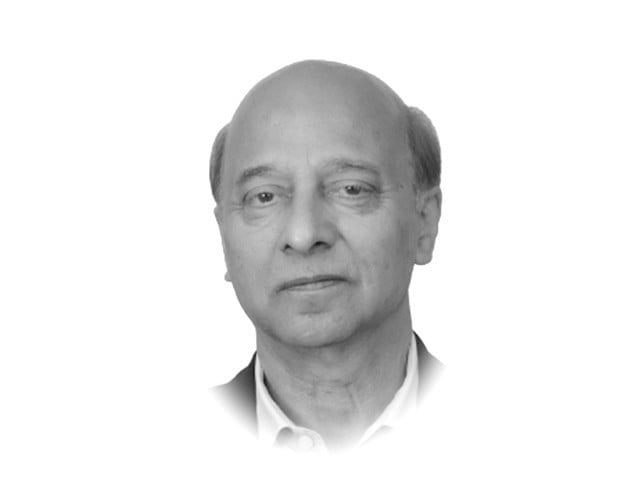
At the risk of annoying many in both countries, herewith I am venturing to put down in black and white as to what bedevils Pak-Afghan relations and why most Afghans dislike, if not hate, Pakistan. Continued state of conflict has given birth to a sense of deprivation as well as an inferiority complex which often manifests itself on occasions such as recent cricket encounters in Sri Lanka , where most Afghan players displayed immaturity and hyped-up emotions that bordered hostility and abuse. I will try to explain the reasons below with the hope that top leadership is aware of this context while attempting to mend, improve and develop relations in a difficult geopolitical environment.
Before entry into the Kandahar airport building, you can be randomly asked for your passport and visa. As I got off the car to head into the airport building, I was directed to a bull of a man – with a stern face. First he asked for travel documents of a religious cleric born in Chaman but with extended family relations and businesses in Kandahar. He held the cleric’s one-page document – strangely holding it in a way that betrayed his ignorance – for some time, returned it and then asked me for passport. He flipped through visa pages repeatedly.
The security assistant browsed the passport too for a while. “What are you looking for?” I couldn’t resist asking after a few minutes. The security guy looked at me again and kept playing with the passport.
It reminded me of the Asharf Ghani and Hamid Karzai days when security officials used to put Pakistanis to extra scrutiny, confronting them with suspicion and hostile looks. It would invariably happen either at the entry or exit – the special treatment to Pakistanis, the nearest enemy “responsible for Afghanistan’s ills.”
Intelligence officials had a long “interrogation” session with two clerics from Chaman inside the terminal before the flight to Kabul. Lo and behold, when we disembarked from the bus at Kabul airport, an official with a walkie talkie waved us all in a certain direction. We followed him into his office where he treated us with lunch and tea. Meanwhile, the official asked the two clerics why they were visiting Kandahar and Kabul. And then said, “You should not have argued with my colleagues at Kandahar,” implying that they had tipped him off.
Not necessarily at all airports, Pakistanis every now and then do encounter such embarrassing treatment at the hands of security officials. Not all but some of them would treat you with deference as well. Once comfortable with you, Afghans are extremely hospitable, friendly and cordial. No doubt about that.
But the brief to security officials seems to be timelessly the same. Whether in mid-1990s or now the Taliban security apparatus hardly looks different from what it used to be until August 2021. What grudges drive this apathy, dislike and at times visible contempt for Pakistan?
As a person who frequently travelled the length and breadth of Afghanistan since 1987 and held it as a second home, I have countless stories to tell – negative stories that fed the evolution of the view on Pakistan, a country that twice served as the springboard for two US-led invasions into Afghanistan. These two military campaigns, according to the common perception, fed and built Pakistan but destroyed Afghanistan, giving birth first to mujahideen and then the Taliban. Both were seen as facilitators of Pakistan’s erstwhile “strategic depth” policy.
You pocketed dollars at the cost of peace in Afghanistan, so runs the allegation.
Systematically you aided forces that became part of a war economy fueled by the American overdrive – first to give a bloody nose to the Russians and then to avenge the 9/11 terror attacks. You offered your shoulders for the US war machinery on both occasions. The ultimate sufferers were the poor Afghans – first at the mercy of mujahideen and then Taliban. In between – 2001-2021 – the misgovernance and corrupt practices continued under the jamhooriat. The development we see in Pakistan is because of the war dollars that the country received.
This narrative began with the Indo-Pak proxy war to the context of post 9/11 events, led by President Karzai. The Ghani years saw a reinforcement of this narrative, with the President himself spearheading the campaign that projected Pakistan in bad light, thereby creating a) strong anti-Pakistan sentiment among the masses; and b) tilting relations in favour of India, which had gone on an unprecedented diplomatic and information offensive across the globe.
Taliban’s militant campaign all these years further reinforced this sentiment. Any expression of support for, or association with, Pakistan is generally synonymous with the “support for ISI”. Any single word in favour of Pakistan instantly draws suspicion and labelling as ISI agent.
Pakistan’s baggage – from support to mujahideen to the Taliban – sits at the heart of the anti-Pakistan sentiment. The Haqqani network and its relations with the Pakistani security establishment also served as the lynchpin of the Indo-US narrative on Pakistan. Attacks on the Indian embassy in Kabul were also attributed to and projected as the handwork of the Haqqanis as part of the information offensive against Pakistan.
Emergence of Daesh in November 2014 in Pakistan is another factor most Afghans slap Pakistanis with.
The problem originated in Pakistan, and we are not responsible for the troubles that have arisen out of a policy you pursued in the past, is the overt and implied messaging by Sirajuddin Haqqani and Defence Minister Mulla Yaqoob.
Officials in both countries have a job cut out for them: how to rub off negativity and distrust from peoples’ minds. It will require more courage and pragmatism in Afghanistan with a top-down approach. Will Taliban regime take lead and help in disincentivising the anti-Pakistan narrative that restricts the chances of building up the relationship free of the past acrimony?
Published in The Express Tribune, September 4th, 2023.
Like Opinion & Editorial on Facebook, follow @ETOpEd on Twitter to receive all updates on all our daily pieces.




1730797299-0/BeFunky-collage-(21)1730797299-0-165x106.webp)



1729685382-0/Untitled-design-(57)1729685382-0-270x192.webp)


1730706072-0/Copy-of-Untitled-(2)1730706072-0-270x192.webp)
COMMENTS
Comments are moderated and generally will be posted if they are on-topic and not abusive.
For more information, please see our Comments FAQ